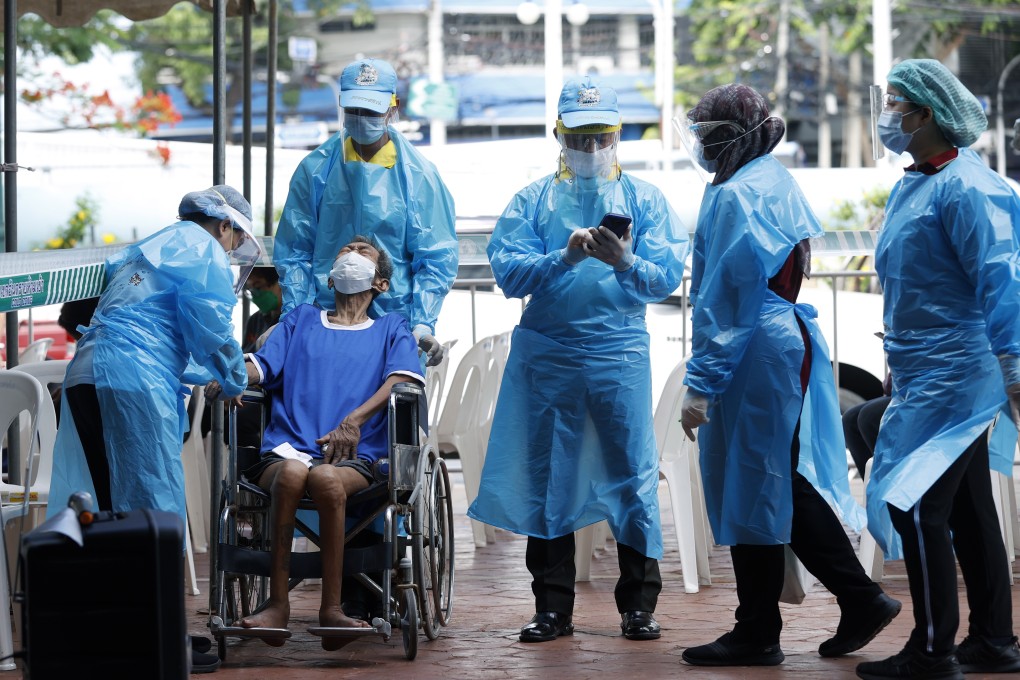Hundreds of Thai health workers who received Sinovac shots infected with Covid-19
- Over 600 medical workers who had two doses of China’s Sinovac vaccine were infected with Covid-19, as health authorities consider booster shots
- Meanwhile, Thailand has imposed a ban on gatherings of more than five people and an overnight curfew to quell the Covid-19 outbreak

This comes as the Southeast Asian country reported a record high of 9,418 community infections on Sunday, a day after recording a record of 91 new daily coronavirus fatalities. Thailand has had 336,371 confirmed infections and 2,711 deaths since the pandemic began last year.
The Thai health ministry on Sunday said more than 600 medical workers who received two doses of China’s Sinovac vaccine have been infected with Covid-19, as authorities weigh giving booster doses to raise immunity
Of the 677,348 medical personnel who received two doses of Sinovac, 618 became infected, health ministry data from April to July showed. A nurse has died and another medical worker is in critical condition.
An expert panel has recommended a third dose to trigger immunity for medical workers who are at risk, senior health official Sopon Iamsirithawon, told a news briefing on Sunday.
“This will be a different vaccine, either viral vector AstraZeneca or an mRNA vaccine, which Thailand will be receiving in the near term,” he said, adding that the recommendation will be considered on Monday.
Most Thailand’s medical and frontline workers were given Sinovac’s shots after February with the viral vector vaccine from AstraZeneca arriving in June.